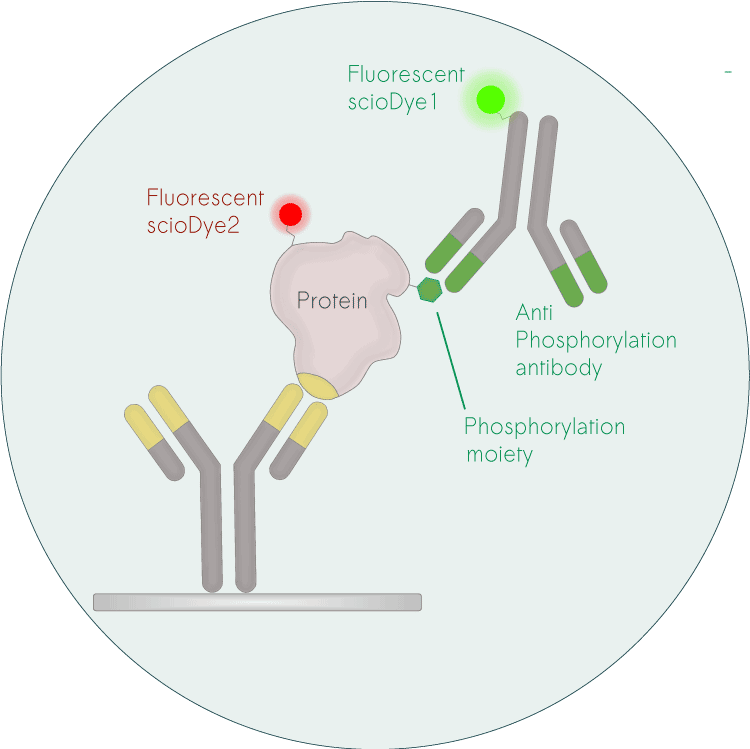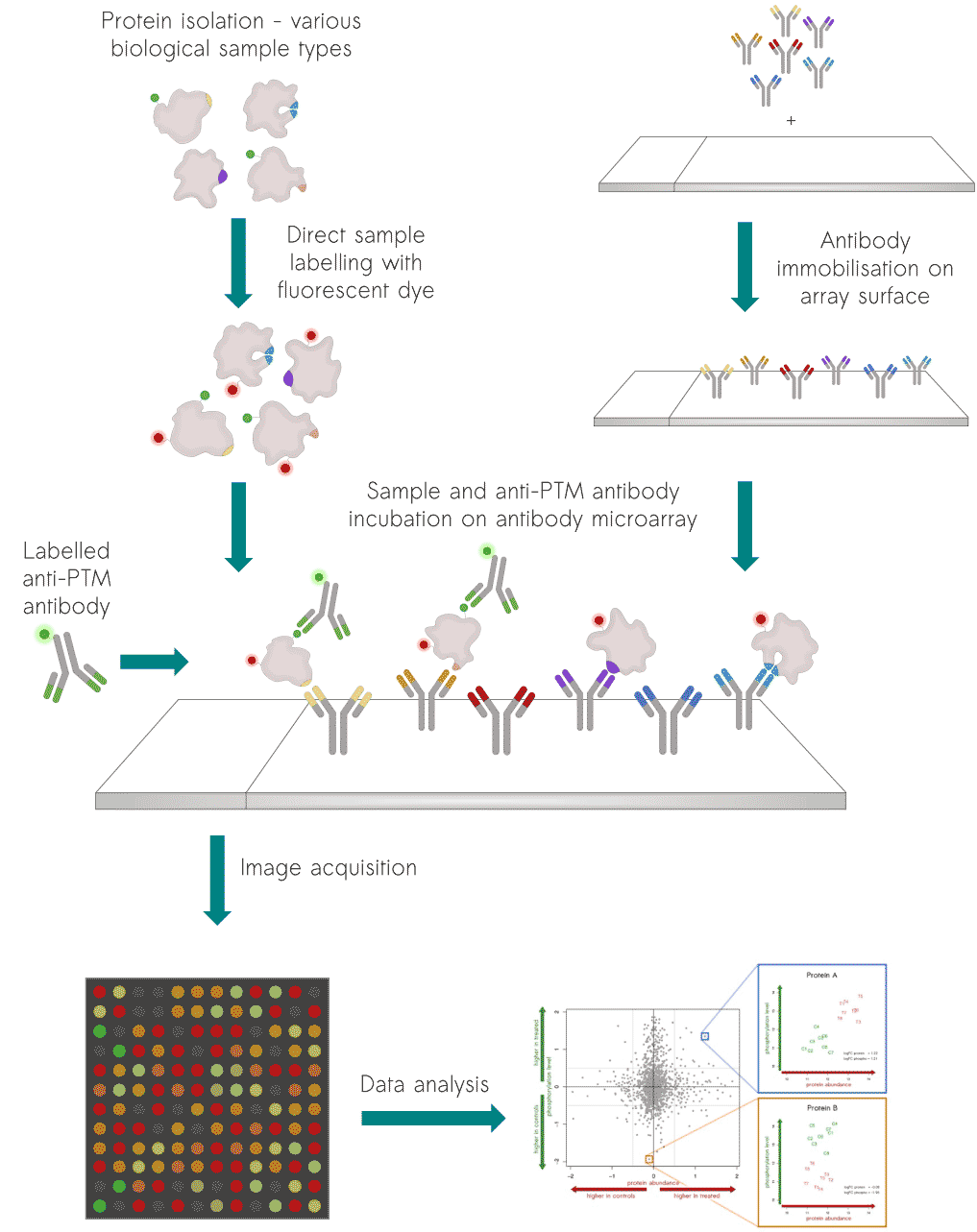Protein abundance and phosphorylation analysis in one step by our high-throughput scioPhospho platform.
Simultaneous detection of protein levels & phosphorylation status of > 1,500 proteins.
Our scioPhospho protein phosphorylation analysis service combines protein profiling using scioDiscover with analysis of the corresponding protein phosphorylation status. More than 1,500 proteins are analyzed in parallel, covering key pathways in diseases such as cancer, neurological disorders and organ failure. This combination provides a comprehensive overview of cellular signaling and pathway activity regulation in your samples.
Thereby, scioPhosho enables a fast and cost-effective in-depth protein and phosphorylation analysis from minute amounts of human biospecimen, organoid models, cell cultur models or animal models. Our full phospho-proteomic analysis service includes expert data analysis and generates knowledge on protein and protein phosphorylation level. This is highly valuable for our clients in preclinical research interested in activity-based protein profiling.

Article in
our research blog Discuss your project
with a scientist

The Assay:
- Phosphorylation and protein expression in a direct comparison in one assay
- Coverage of key signalling pathways
- Analysis of various sample types with minimal sample amounts
- Native matrices (non-fractionated / non-depleted)
- 4 replicates for each antibody
- High reproducibility (CV < 10%)

Applications
- Pathway analysis / Pathway regulation
- Mode-of-action studies
- Drug response profiling
- Disease mechanism screening
- Biomarker discovery
- Validation of predicted protein phosphorylation
Data Analysis is included
- Comprehensive data analysis using a basis of > 12,000 data points for each sample
- Differential proteomics and phosphoproteomics
- Protein interaction network analysis
- Biological and pathway classification
Phospho-proteomic studies
- Characterisation of a Parkinson Organoid Model in terms of protein secretion as well as intracellular effects
Poster presented at ADPD 2022 - Phosphoproteomic anaylsis of osteoclasts differentiated from human peripheral blood
Front. Immunol. 13:958974 - Protection of kidney toxicity and anemia by preventing protein phosphorylation changes
Kidney Int. (2022)102(4):750-765. - Characterisation of protective effect of Complement component 5a receptor 2 in ischemia reperfusion injury
Kidney International (2018) 94, 741–755. - Analysis of BET and PARP inhibitor synergy in Small Cell Lung Cancer cellular model
Int J Mol Sci (2020) 21